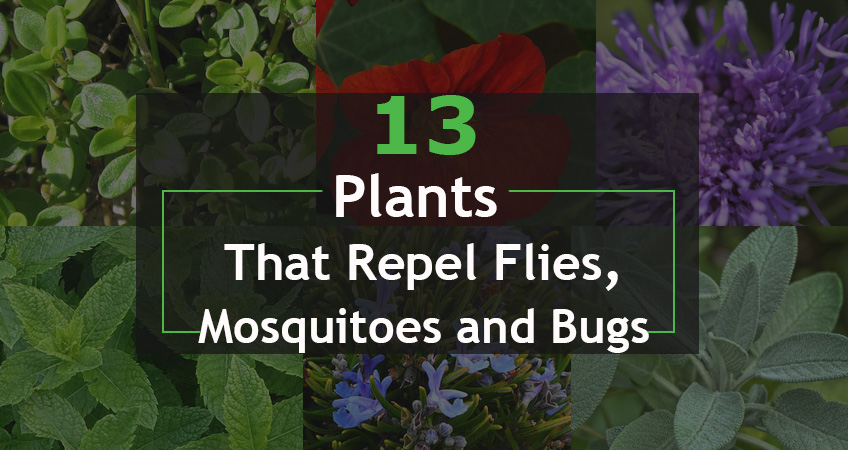Keeping bugs, mosquitoes and flies at bay is a challenge, especially if you intend to hang out in your patio or backyard. There are many ways to get rid of them, but only plants will do the job while making your outdoor space look beautiful and colourful.
Here are the plants that you should keep in your backyard to repel bugs and other insects.
1. Petunias
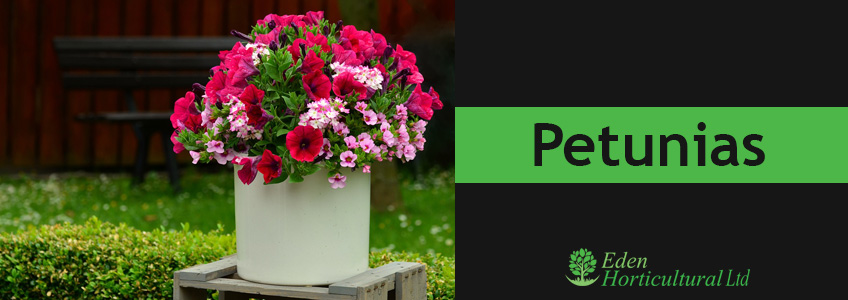
Petunias are sometimes referred to as nature’s pesticide because of how well they repel leafhoppers, asparagus beetles, aphids and squash bugs. They can be potted, planted in garden beds or placed in hanging baskets. Their bright purple and lilac colours beautify and brighten their surroundings.
Petunias should be planted in sunny areas and near tomatoes, peppers, basil and herbs to help these plants grow.
2. Marigolds
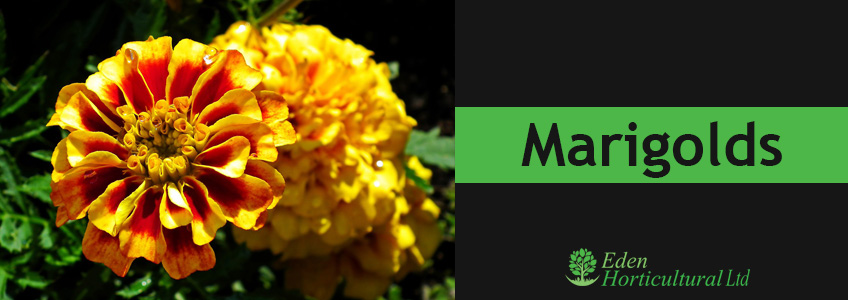
Marigold has a distinct scent that drives rabbits, aphids and mosquitoes away. These sun-loving plant’s roots are well-known to repel nematodes, although it takes a year to see results. They also drive away whiteflies by releasing limonene, which slows them down.
Marigold is an annual plant and should be grown along the corners and borders of your garden’s beds. They are easy to maintain in a garden.
3. Lavender

Lavender is a popular plant that has been used for many years to add a sweet fragrance to drawers and homes. However, mosquitoes, moths, fleas, flies and bugs hate the smell of this plant, as it drives them away. To get the maximum effect, lavender should be kept in bouquets and planted in sunny areas or doorways of a house.
The oil extracted from this plant can be applied to your skin when hanging out in a garden or patio. It nourishes your skin and helps to induce sleep.
4. Basil

This plant is a specialist house fly and mosquito repellent. Basil should be placed in containers and by doorways to help you relax while keeping the bugs away. This plant is also delicious in foods like pork, salads, and chicken recipes. Best of all, basil improves the flavour of tomatoes, asparagus, vegetables and peppers.
The oil of this annual plant also kills mosquito eggs, and you can use it to make an insect repellent by yourself. This versatile oil can be used to treat mosquito bites as well. Rolling its leaves between your hands will extract the oil from the plant.
5. Lemongrass
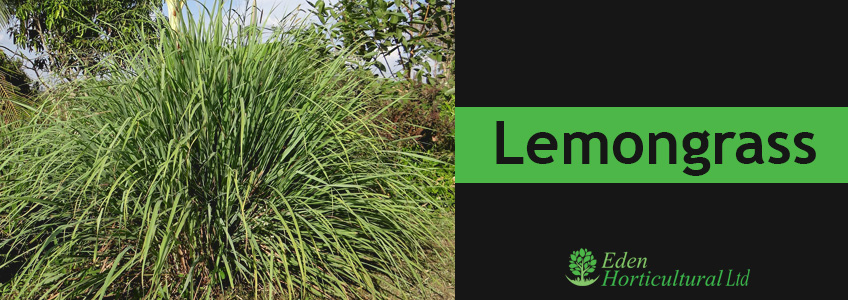
Lemongrass is a popular plant, but not as known as citronella, the natural oil found in it. It is an annual plant that grows well on the ground or in pots. However, the garden or farm that it is planted in should be well-drained. Lemongrass has excellent culinary uses, and it repels mosquitoes completely.
6. Nasturtiums
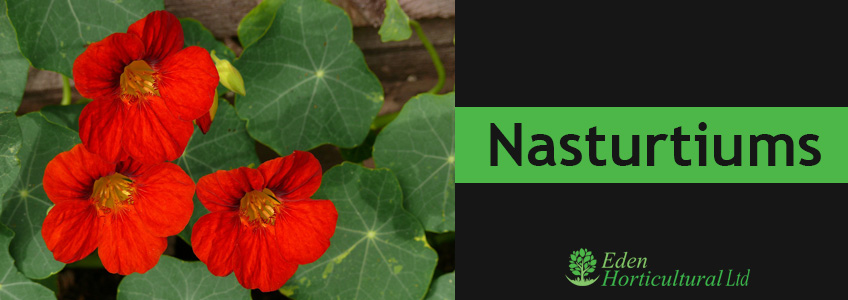
Nasturtiums repel squash bugs, aphids, beetles and cabbage loopers and their airborne chemicals protect other plants from these insects. They are best planted early on in spring and need a lot of sunlight to grow. They also need to be watered frequently and deadheaded to help them bloom. Nasturtiums are the perfect repellent choice for vegetable gardens.
7. Floss Flowers
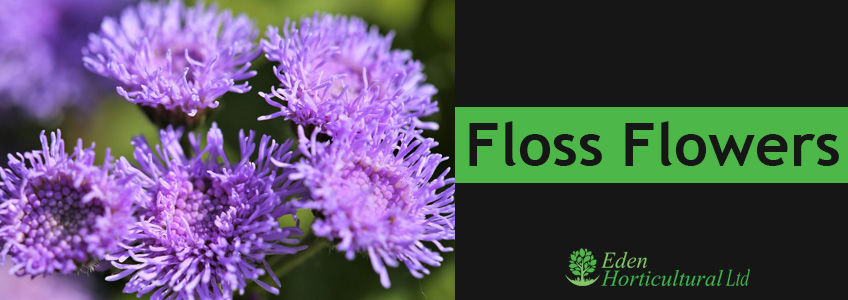
Floss flowers have a distinct light blue colour that beautifies their surroundings. They contain the same chemical found in sweetgrass that repels bugs and mosquitoes, and their blossoms come out in the fall and summer.
Floss flowers can be planted in flower beds, edging plants and rock garden, but need to be watered frequently and grown on fertile soil.
8. Lemon Thyme
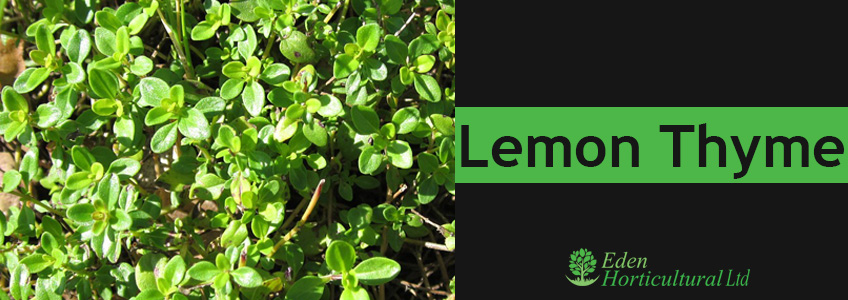
One plant that thrives in rock and herb gardens is lemon thyme. The herb grows well in front borders, as long as there is enough sunlight in such areas. The plant repels mosquitoes and releases a chemical only when the leaves are squeezed. But before you do this, make sure the properties of lemon thyme would not adversely affect you. You can find this out by rubbing its leaf on your forearm.
9. Rosemary

Rosemary is available in many forms and can be grown in herb gardens, planted in beds or put in a pot. This plant repels mosquitoes and many other insects that are harmful to it. The oil from rosemary can be used to make repellent sprays at home.
Rosemary is a plant that likes to stay dry. It beautifies a home and catches the eye when placed in an outdoor centrepiece.
10. Mint

Mint is a popular plant that its name suggests its smell immediately it is heard. Mint should not be grown on the ground or in beds, but rather in pots because they spread quickly and aggressively. It is a perennial plant that repels mosquitoes and bugs excellently in any garden or farm it is planted in.
Although it is easy to grow, it can prove to be a handful to remove. The scent from the leaves of this plant is also found in the stem and flowers. The oils of the plant can be extracted and combined with vinegar to make insect repellents.
11. Garlic

Garlic is well-known for its health benefits when cooked. However, its use as a plant that drives away maggots, codling moths, beetles and carrot root flies is not popular. Garlic should be planted near roses to prevent aphids from getting into your flowery plants.
12. Sage

Sage is a perennial that can be grown in patios, landscape beds or planters in a garden. This plant has aesthetically-pleasing leaves with a scent that keeps beetles and moths away. If you want to camp and need to get rid of bugs, you can use a little sage and rosemary to repel them.
13. Pitcher Plant
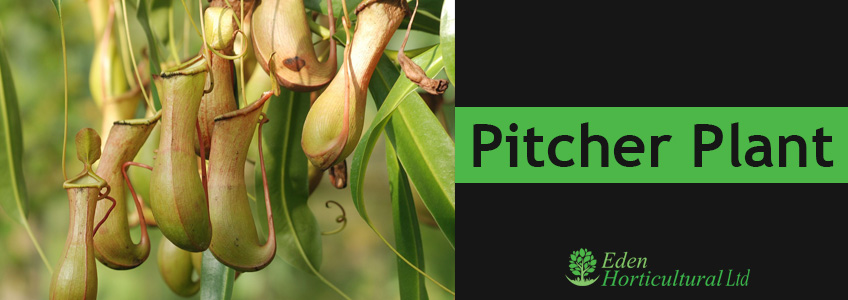
Pitcher plants are carnivorous plants that trap insects. Do not be fooled by their exotic look and fragrance. Pitcher plants have developed a sophisticated mechanism consisting of slippery surfaces that ensure insects do not escape from its hold. Bees, beetles, slugs and snails all fall prey to this plant.
In Conclusion
These are the plants that will definitely keep all bugs away. To aid the repellent process, keep all food and trash covered. Also remove still water, which can breed bugs and insects from your surroundings.
Read also:
-
How To Grow Wisteria?
-
Benefits Of Planting Trees
-
Garden Design Trends for 2019
-
Garden Design Ideas for 2019


